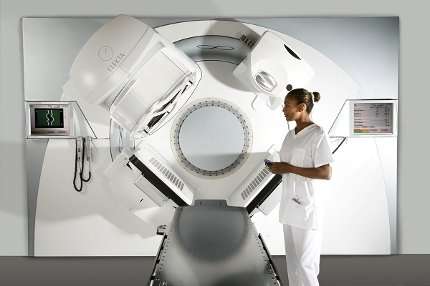- Home
- Editorial
- News
- Practice Guidelines
- Anesthesiology Guidelines
- Cancer Guidelines
- Cardiac Sciences Guidelines
- Critical Care Guidelines
- Dentistry Guidelines
- Dermatology Guidelines
- Diabetes and Endo Guidelines
- Diagnostics Guidelines
- ENT Guidelines
- Featured Practice Guidelines
- Gastroenterology Guidelines
- Geriatrics Guidelines
- Medicine Guidelines
- Nephrology Guidelines
- Neurosciences Guidelines
- Obs and Gynae Guidelines
- Ophthalmology Guidelines
- Orthopaedics Guidelines
- Paediatrics Guidelines
- Psychiatry Guidelines
- Pulmonology Guidelines
- Radiology Guidelines
- Surgery Guidelines
- Urology Guidelines
New MRI may reveal molecular changes in the brain

Scientists at the Hebrew University of Jerusalem (HUJI)'s Edmond and Lily Safra Center for Brain Sciences have developed a new magnetic resonance imaging (MRI) which may reveal molecular changes in the brain. The same was published in one of the most reputed journals, Nature Communications.
The researchers have used a tissue relaxivity approach which decodes molecular information from the magnetic resonance imaging signal and may reveal the molecular composition of lipid samples and predict lipidomics measurements of the brain. This new technology produces unique molecular signatures across the brain, which are correlated with specific gene-expression profiles.
The innovation may unveil the biology of the ageing process and the mechanism behind various ageing-related disorders such as Alzheimer’s disease. This technology is particularly helpful for doctors to understand whether a patient is merely getting older or developing a neurodegenerative disease, such as Alzheimer's or Parkinson's.
The researchers have developed a mathematical model that compares the water content of the brain with measures of physical properties obtained from MRI scans to calculate the molecular composition of lipids in the brain.
MRI scanners use powerful magnets to align the protons (hydrogen atoms) in water molecules. Radiofrequency waves then excite the protons, which as they relax, produce weak radiofrequency signals that the scanner can detect. Images are created based on the varying relaxation times between different tissue types. qMRI also measures and records physical properties such as relaxation time, magnetization transfer rate and the water fraction. This information has been shown to be linked to biophysical properties of brain tissue.
To see whether the composition of lipids in brain tissue could affect these physical parameters, and therefore be measured by them, Mezer and colleagues conducted magnetic resonance imaging scans on model lipid mixtures containing common brain lipids. This revealed unique relaxation signatures for different lipids. Next, they validated their results with MRI measurements and post-mortem data on the lipid composition of different brain tissues from a previous study.
For reference, follow the link
Shir Filo et al, Disentangling molecular alterations from water-content changes in the aging human brain using quantitative MRI, Nature Communications (2019). DOI: 10.1038/s41467-019-11319-1

Disclaimer: This site is primarily intended for healthcare professionals. Any content/information on this website does not replace the advice of medical and/or health professionals and should not be construed as medical/diagnostic advice/endorsement or prescription. Use of this site is subject to our terms of use, privacy policy, advertisement policy. © 2020 Minerva Medical Treatment Pvt Ltd